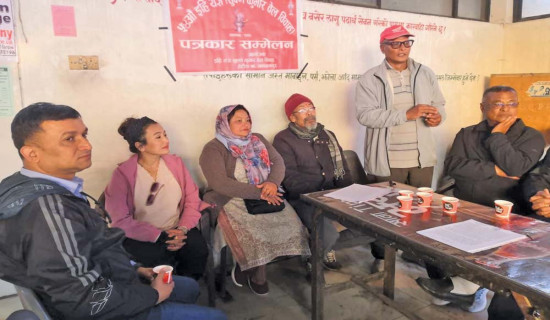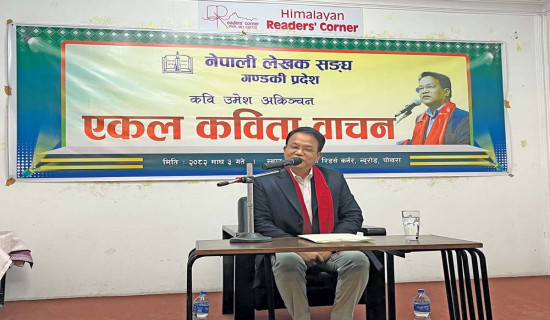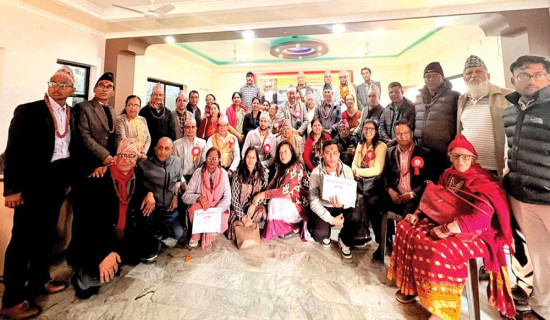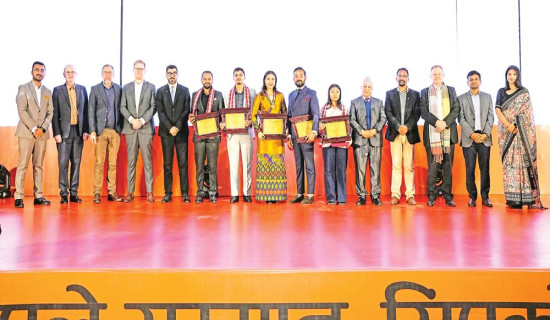- Thursday, 22 January 2026
Budget and federalism: Still one-sided in distribution of resources, indifference to devolution of power
Kathmandu, June 10: The budget brought recently by the federal government for the fiscal year, 2082/83 has been commented as an insubstantial document in terms of enforcing fiscal federalism.
The speakers and experts at a programme on 'Budget from federal lens' organized by the Federalism and Localization Centre in the federal capital on Monday argued the budget was still slow off the mark to allocate power and resources to the sub-national governments.
"The budget was brought, reflecting a unitary system, thereby denting fiscal federalism," argued Upendra Yadav, Chairman of Janata Samajbadi Party. He complained the provincial and local governments were deprived of resources. The access and influence to power were determining factors behind the allocation of budget, he blamed.
Former Finance Minister Barshaman Pun said if the concept of project bank was not enforced effectively, it would adversely impact entire project plan and management process. He further said the projects could be selected based on government strategies and perspective plan, but leaders' and ministers' priorities could derail it.
Chairman of Finance Committee of the House of Representatives, Santosh Chalise, however, said the Committee repeatedly discussed the points for budget, which were later incorporated in the budget. "Most of the provinces and local levels are dependent on central government for fund, which is not sustainable for long run," he observed.
National Assembly lawmaker Kamala Pant said although the budget was positive in average, it is challenging to secure resources for impactful enforcement. She argued, "Budget has failed to reflect financial discipline irrespective of the suggestion from auditing agency." It seems almost impossible to achieve sustainable development goals in four years, according to her.
Former lawmaker Dil Kumari Thapa Rawal commented that the budget failed to address pressing concerns- the implementation of constitution and federalism. "Only political federalism does not suffice, but a robust fiscal federalism," she reminded.
Former member of the National Assembly and Chairman of the Federalism and Localization Centre, Dr Khim Lal Devkota, also asserted that budget was away from the spirit of constitution and federal structure. Although the local and provincial governments have exclusive rights, implementation is weak. Fiscal devolution is much awaited, he stressed.
Also the expert on fiscal federalism, Dr Devkota further claimed, "Revenue system is still old- guided by the same centralized/unitary system. There is random cuts on equalization grants now though the federal government had earlier launched such grant. On the other hand, the conditional loan is excessive, which hinders the autonomy of province and local governments to take decisions on their own."
In the programme, HoR member and CPN UML leader Yogesh Bhattarai admitted that most of the political parties were still sticking to the centralized perspective despite having federalism in place.
Former Secretary Bidyadhar Mallik observed that government ignored poor class and citizens in the budget. The conditions on conditional grants must be reduced, he underlined.
Deputy General Secretary of Municipality Association of Nepal, Sunita Dangol, commented that there is a vertical imbalance in fiscal federalism in Nepal. (RSS)

.jpg)

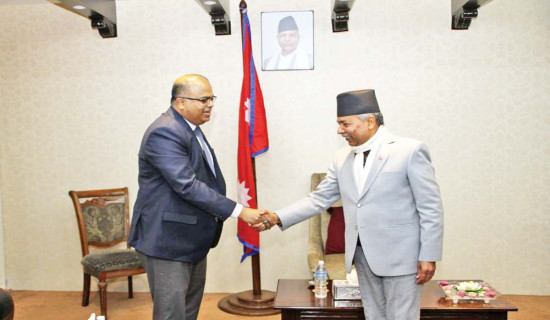
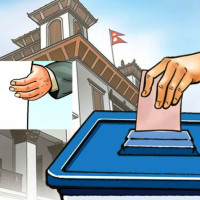

-original-thumb.jpg)


